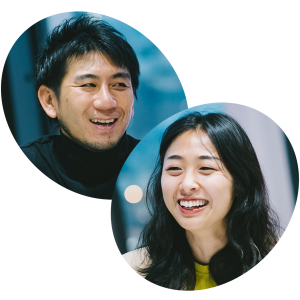On December 15th, Shibuya COP Academy will be held as a place of learning to take action from Shibuya together with companies that are interested in environmental issues, mainly member companies of Future Design Shibuya. Kanayama from Future Design Shibuya interviewed Ms. Makina Saza of the general incorporated association SWiTCH, who is a lecturer.
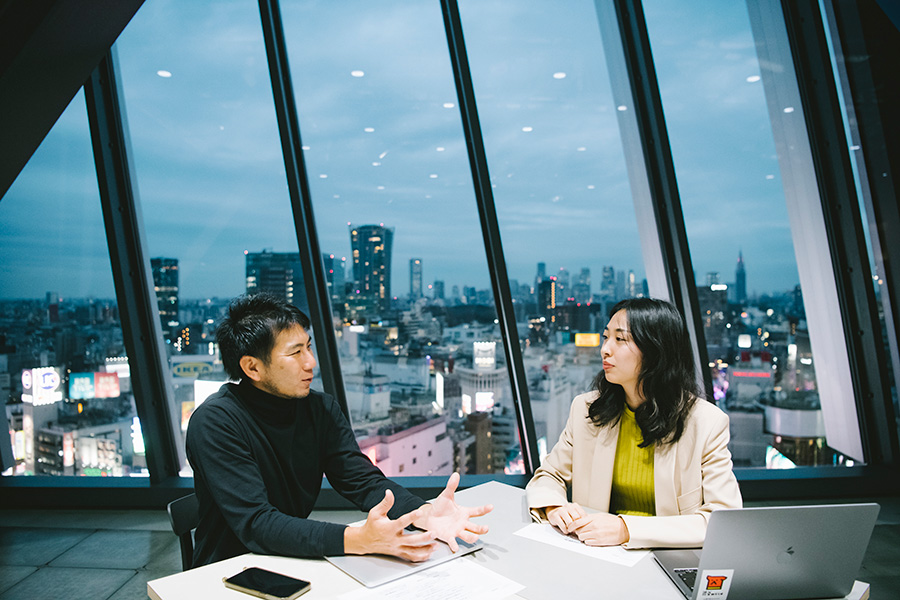
How to learn to realize that you can do something
——First of all, please tell us about your activities so far, Mr. Saza.
SazaIn 2019, I started sustainable development at a graduate school at the University of London, but I took a leave of absence from the following year due to the corona crisis and returned to Japan. At that time, the climate change conference "COP26" had just been postponed for a year, so eight young people including myself asked, "What are the policy proposals that young people really want?" A mock COP "Mock COP" was held online. There, 330 young people from 140 countries around the world gathered to make policy proposals, but the one that received the most support was the one that made "climate change education" mandatory all over the world.
Therefore, I have been lobbying for the spread of education around the world that teaches properly in schools why climate change is happening and how to avoid it. At the COP26 meeting, more than 20 countries, including Japan, signed the "Mandatory Climate Change Education" under the joint initiative of the British government, the Italian government, UNESCO and UNICEF. In Japan as well, I have had the opportunity to meet environment-related bureaucrats and people in the business world. was really a shock. I realized that even though the world is paying so much attention to climate change, there is a huge difference between Japan and other countries. Therefore, in January 2022, we launched an incorporated association called SWiTCH in order to encourage Japanese people to recognize and act on environmental issues.
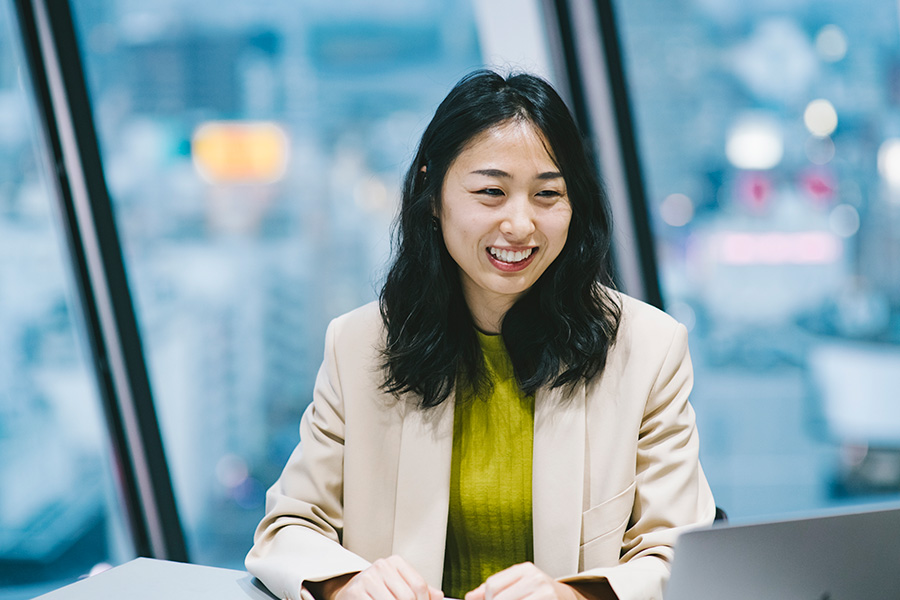
Another problem in Japan is that there is a huge gap in understanding of sustainability among different age groups. Children in their teens and twenties receive ESD education as part of their compulsory education, so they naturally understand that <environment>, <society>, and <economy> are all interconnected. On the other hand, older people seem to think that working on the environment, volunteering, and contributing to society have nothing to do with "work." Young people today want to work on the environment as a business. This is a big difference in values, and I believe that activities to fill that gap are necessary.
KanayamaWhen you look at the world, what do you think is the most advanced?
SazaIt 's Northern Europe after all. Since around 2015, the EU has been actively teaching about a recycling-based society in schools. The fact that those children are now adults is one of the factors behind the increasing level of policies being implemented in EU countries.
KanayamaHow many generations of children have such education been installed? Since elementary school?

SazaI have been learning since I was in elementary school, and I have many opportunities to learn through experience. That's why we have a very strong recognition that we are one of the players who can change society. For example, we do mock voting in class. Since I was in elementary school, I have experienced how the structure of society will change depending on my vote, such as voting for people who are green, or voting for people who are more capitalist. Because they are learning, they understand that when they grow up, they will be able to change the country and the community as a member of society.
In the case of Japan, I feel that many young people do not realize that they can do something as a player in society. According to the Nippon Foundation's 2019 attitude survey for 18-year-olds, only 18.3% of young people "think they can change society and the country by themselves." The US is 65.7% and the UK is 50.7%. I think that the difference is probably due to the difference in education, and I think it is also connected to the fact that Japanese young people are said to have low self-esteem.
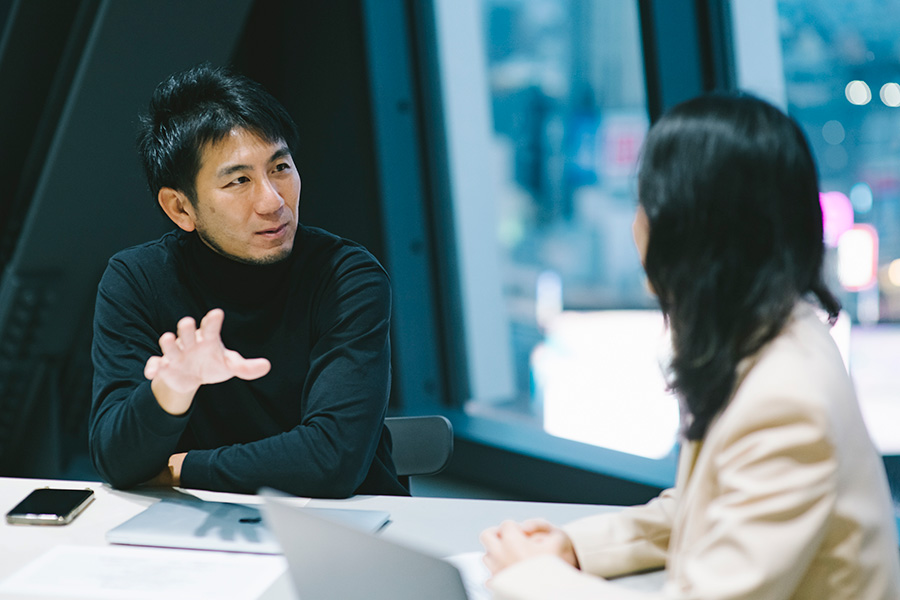
Environmental Awareness of Companies and Young People, How to Light a “Serious Fire”
Kanayama By the way, I participated in last year's "COP26" (Glasgow, England) locally, and at the "COP27" (Sharm el-Sheikh, Egypt) held the other day, I planned and operated a talk event connecting Egypt and Shibuya. You know? Given the current situation of young people in Japan, how do you see the ideas and efforts of young people in environmentally advanced countries around the world?
Saza: I understand that young people in Europe are expected to be members of society, and young people are living up to those expectations. It would be nice if you could start it from Shibuya.
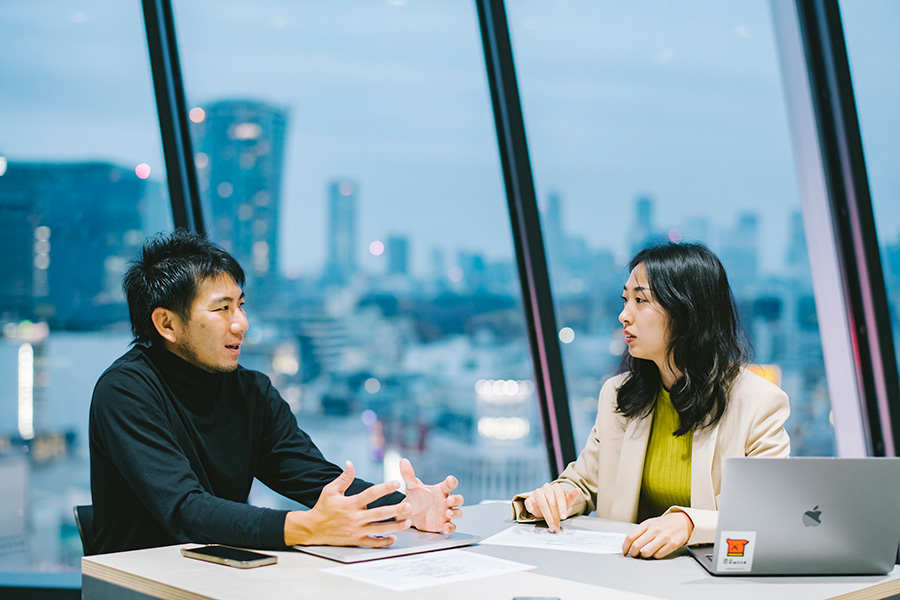
Kanayama Shibuya has been called a "youth town" until now, but to be precise, it was "a town where young people consume a lot". It was one of Japan's largest consumption areas of capitalism, consuming mass products. Everyone works towards the same trend and consumes a lot of mass-produced products--but now, the things and places to buy are diversifying, and we are in an era where we can do it online.
However, fortunately, I think that the fact that young people gather in the city of Shibuya still remains as a legacy from there. So now, I personally want people to come to Shibuya for whatever reason, and I personally want to create an opportunity for them to naturally develop social awareness when they come. In other words, the place of learning is not only at school, but if you play in Shibuya or talk to cool people, you will naturally develop an awareness of the environment and awareness of diversity and inclusion. I think it would be nice if it became such a "town for young people".
In that sense, Shibuya COP is a very good project, and I hope that it will continue as a mechanism for not only "gathering" conscious people to Shibuya, but also "getting them conscious." increase.
Saza That's true. In thinking so, I feel that what is missing in Shibuya now is a place to experience. I can still shop like I used to, but I need to update from there. I think it's a shame that there are no places where you can experience socially good activities when you come to Shibuya.
In Kanayama's ideal, for example, the developer and the local government make an agreement that 60% of the stores in the commercial facility with a radius of 200 meters around Shibuya Station must have a certain number of sustainability indexes, and if that is achieved, the volume will be reduced. , I think that it will change greatly if it becomes like building a tall building.
Because Shibuya is a big consumption area, it would be interesting to quantify and quantify something like climate traceability of various economic activities. If the place of consumption changes, the values of the people who come there will change, and the circle will spread with the share of young people who gather in Shibuya, and if such a culture is installed, the commercial facility side will sell. Because we want to sell things, the shopping experience in Shibuya will turn into a sustainable one.
SazaI'm looking forward to that.

Kanayama Also, when it comes to greening, we often talk about area management or town management in urban development. There is a mechanism to think about what kind of position it is. So in addition to that, it would be nice if something like green area management could be run together. Shibuya COP designed it mainly for the young generation, and it was a co-creation type with developers, local governments, organizations like Future Design Shibuya, and companies.
Saza That's good. I think it is necessary to have people who have high expectations of young people in the form of forming partnerships together.
Many young people are very environmentally conscious, but I think there are still some things they don't take seriously. Therefore, in order to ignite a serious fire, we have to make it a “participation type”. Without a place where they can do something, young people will lose hope for society and themselves. Young people will be able to participate in shaping a better society and build up their own capacities, which will expand their possibilities.
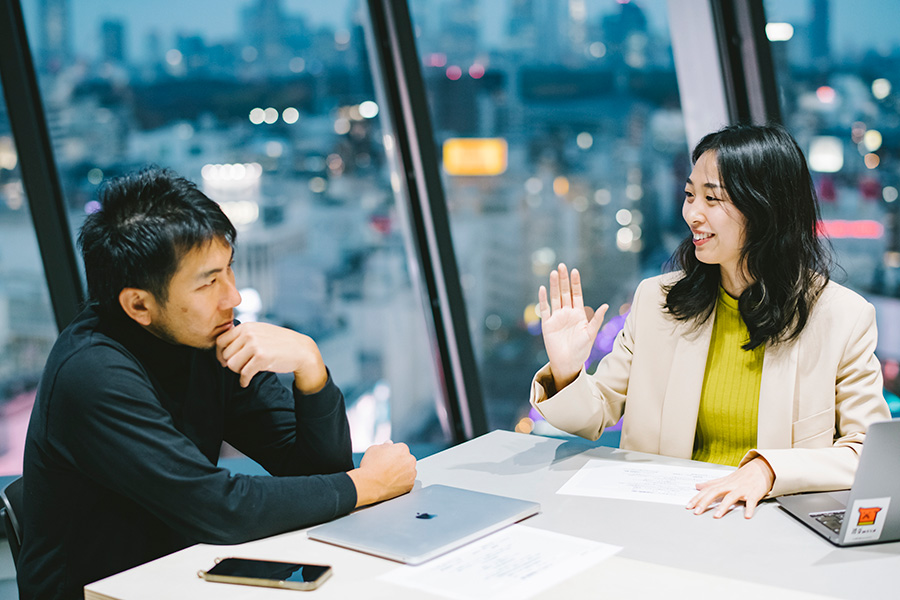
Study session "Shibuya COP Academy" to think about the environment from the future of Shibuya
I think more and more companies have high hopes for Saza Wakasa, but when it comes to actually getting to the point where they can actually get to the point where they can actually make a concrete project, they often give up on the reason that it is difficult to monetize.
In Kanayama, what kind of things do these companies expect from young people?
SazaOne thing is that they can come up with methods that we couldn't even think of. The expectation is that they will be able to solve the problems that we cannot solve ourselves. We need adults who are serious about what we can do to give shape to the expectations of young people, and who will walk alongside us. There are still few companies that do business while balancing society, economy, and the environment. I think we have to fill that gap.

——On December 15th, we will hold a study session “Shibuya COP Academy” inviting member companies of Future Design Shibuya. What do you want companies to think about?
What we young people want to see is that companies based in Saza-Shibuya Ward and the town as a whole transform into a green model for the world. How can we implement it as an innovative project and change the city of Shibuya?I think that this study session is a place for companies and young people to think together and connect it to action. We would like to make Shibuya even more green while introducing a variety of global trends and good examples of sustainability, so we would like companies that want to change Shibuya together with us to participate.
KanayamaIt would be nice if the people who gathered there could create a big vision for each city, not just a small company that started a project. When you say "study", just learning doesn't lead to output, so I would like you to study and aim for output. However, whether or not it will become a realistic form is still up for discussion, and I think the value of this study group will be determined by how much an ideal ecosystem can be modeled. I think.
SazaThinking together about Shibuya in the future rather than Shibuya now, I would like people who can draw a big vision of what kind of system can be created when this city becomes truly green. I hope so.
"Shibuya COP Academy"
December 15, 2022 @ Offline venue & online distribution
(Archives will be distributed/scheduled to be held multiple times in the future)
Detail is CONTACT Contact us
Text) Suke Amada
Photo) Masaru Saito



